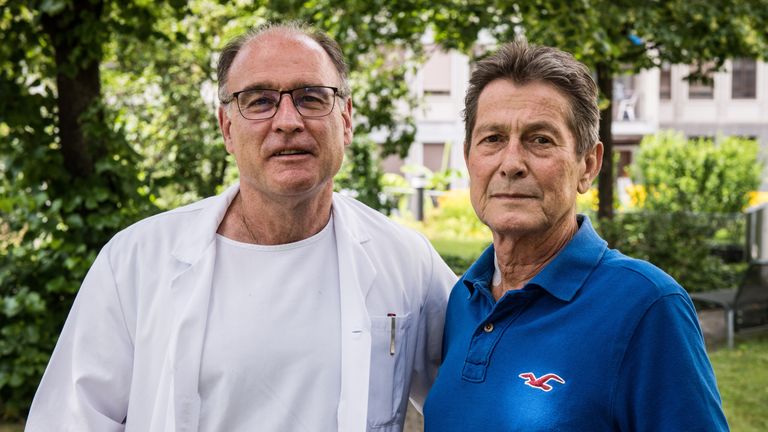A damaged human liver was treated and preserved in a machine for three days before being successfully transplanted into a patient in a world-first operation, researchers have revealed.
The man involved quickly recovered his quality of life without any signs of liver damage or rejection – and remains healthy a year after surgery.
Researchers have said this development may save lives because the technology could increase the number of livers available for transplant and allow surgery to be scheduled days in advance.
The man who was operated on was a cancer patient on the Swiss transplant waiting list, who was given the choice of using a treated human liver.
Following his consent, the organ was transplanted in May 2021, and he was able to leave hospital a few days later.
He said: “I am very grateful for the life-saving organ. Due to my rapidly progressing tumour, I had little chance of getting a liver from the waiting list within a reasonable period of time.”
It comes as there is an increasing gap between the demand for liver transplants and the number of available organs.
And as clinical practice is to store donor livers for no more than about 12 hours on ice before transplantation, the number of organs that can be matched to transplant recipients is limited.
‘The future of medicine’
The human liver in this case was preserved at University Hospital Zurich using a machine that performs a technique known as ex situ normothermic perfusion.
This is when the organ is supplied with a blood substitute at normal body temperature while outside the body.
The machine copies the human body as accurately as possible to provide ideal conditions for human livers.
Professor Pierre-Alain Clavien and his colleagues at the hospital’s department of visceral surgery and transplantation prepared the liver in the machine with various drugs, making it suitable for transplant even though it was originally not approved for the procedure.
The liver was transplanted into the patient, who was suffering from several serious conditions, including end-stage liver disease and liver cancer.
Prof Clavien said: “Our therapy shows that by treating livers in the perfusion machine, it is possible to alleviate the lack of functioning human organs and save lives.”
Mark Tibbitt, professor of macromolecular engineering at ETH Zurich, described it as “the future of medicine”.
“This will allow us to use new findings even more quickly for treating patients,” he added.
The findings have been published in the Nature Biotechnology journal.

